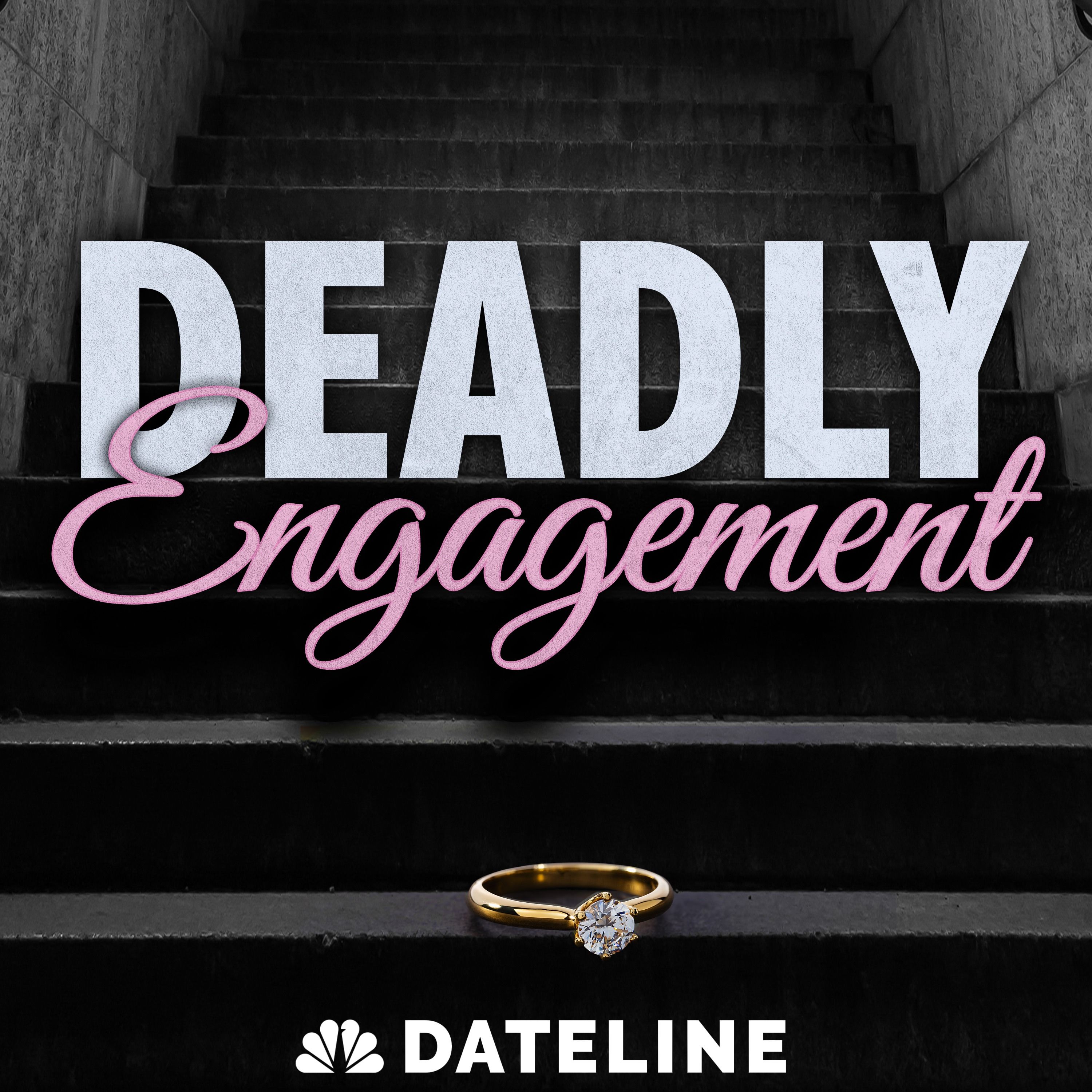13 Alibis - Ep. 7: Lost Time
This episode was originally published on May 16, 2019.
Press play and read along
Transcript
Speaker 1 This season, find the gifts they'll love with Shop Today's Gifts We Love. Gifts to surprise him and delight her, the hot toys for kids, and those hard to shop for teens.
Speaker 1 With Shop Today's Gifts We Love, you can shop our top 100 gifts for everyone on your list so you can find everything they really want, and maybe even a little treat just for you.
Speaker 1 It's your ultimate holiday gift guide with incredible deals you don't want to miss. For the gifts they're sure to love, head to today.com slash gifts we love and start shopping now.
Speaker 3 the ruling of the courting lead is hereby ordered as the federal vote should
Speaker 3 eviction is granted you are hereby released
Speaker 2 they let you go like if nothing ever happened and i have to live with all the scars internally and people expect me to be happy.
Speaker 4 It's now been three years since Richard Rosario was freed after spending 20 years in prison. He says the transition has been harder than he expected.
Speaker 2 I was in a cage, and I would lay in that bed thinking all day about what I would do if I came home. And when I finally came home, it wasn't nothing like I thought it would be.
Speaker 4 I'm Dan Slepian, and this is the final episode of 13 Alibis.
Speaker 2 Being released was the happiest day of my life, but then I had to try to figure out how to, you know, just
Speaker 2 deal with society, deal with people, you know, just to learn the rules of life again. And it's been difficult what to do, what not to do, how to talk, how to present myself.
Speaker 4 There's a stereotype that after an innocent person has been freed, you must be thrilled.
Speaker 2 But it's a little more complicated than that, says Rosario.
Speaker 4 I caught up with him in mid-March 2019. He says he has flashbacks, almost like a prisoner of war.
Speaker 2 Just recently, I was in the kitchen just cutting something.
Speaker 2 I was preparing food and I started crying. And it was because
Speaker 2 I had a dream when I was in jail that I was home doing exactly that and I froze. I didn't know if I was still there.
Speaker 2
I didn't know if I was still in jail. So a lot of times I feel confused.
I know I'm home, I'm happy, but then I go through different emotions, stress and depressions. I can't stay still.
Speaker 2 I can't be around too many people. And it's caused a lot of problems between me and my children and, you know, in relationships with people in general.
Speaker 4 He says the trauma of his ordeal has made it difficult to work.
Speaker 2 You haven't gotten a job?
Speaker 2 Well, I tried working. I had gotten a job.
Speaker 2 They gave me a job in construction. I was part of a work crew that
Speaker 2
I realized came from prison. And as soon as I felt like I was back there, I just walked off the job site.
I ain't even come back. I can't be around that.
Speaker 4 Despite all the challenges, Richard's wife Minerva, who stood by him since the very beginning, is still there.
Speaker 2
Minerva's a great person. She's a strong woman.
She's been through a lot. And it's challenging for her because
Speaker 2 I couldn't imagine what it is being in her shoes, having to deal with me daily and having to see what I go through.
Speaker 4 Richard admits he is not the easiest person to live with.
Speaker 2 My wife is still, you know, suffering the burden of having a, you know, she raised my kids for 20 years and now
Speaker 2 she's paying for a grown man to live in her house and she loves me and I want to help her and I have in some ways, but, you know, it's not enough. I don't get out and I can't really do nothing.
Speaker 2 I'm still trying to get my life together. So it's making her life difficult.
Speaker 2 It's just been difficult. Relationships with my children,
Speaker 2 just being able to understand what they went through and try to make them understand that we all been victimized, but I didn't really know how to adapt to adults at this point.
Speaker 2 So it's been hard.
Speaker 4 Just over a year after his release, Rosario filed a civil lawsuit against the city of New York for his wrongful conviction. He wants compensation for what he went through.
Speaker 4 One of his attorneys, Emma Freudenberger, joined us for the interview.
Speaker 5 Richard has an incredibly strong case, in part because the proof of his innocence is so strong.
Speaker 5 It's ironclad. Nobody can contest that Richard was in Florida on that day when George Galazzo was murdered.
Speaker 5 What was clear all along that Richard went to prison because of intentional police misconduct?
Speaker 4 Lawyers for the city declined an interview, but did send this statement that said, we will not comment while this case is pending. We do not try cases in the press.
Speaker 4 We try them in the courtrooms where both sides of a controversy have a fair opportunity to present their evidence and make their arguments before a neutral tribunal.
Speaker 4 So the city has not said, we're sorry, we're paying you.
Speaker 4 The city is fighting this.
Speaker 1 So far, the city has fought it.
Speaker 5 It's mind-boggling.
Speaker 2 What is their argument?
Speaker 5 For the civil portion, you need to prove intentional misconduct. You need to prove that the officers knew what they were doing.
Speaker 5 Not necessarily that they knew that they were framing an innocent man, but that they did something improper that they knew was improper.
Speaker 4 So it's not enough to prove that they made a mistake.
Speaker 5 It is not enough to prove that they made a mistake.
Speaker 4 I think that that concept would seem unfair to a lot of people, that it has to be intentional misconduct.
Speaker 2
The laws seemed unfair in that people like Richard might not be able to meet that bar. They are.
They're absolutely unfair.
Speaker 5 I mean, Richard went through something unimaginable to most of us. And just for having gone through that, he should be compensated.
Speaker 2 You released me. You know I didn't commit this crime.
Speaker 2 What happened to the investigation they were doing into the wrongful conviction, into who could have possibly committed this crime?
Speaker 4 That's a good question. George Colazzo's murder remains officially unsolved.
Speaker 2 There was a murder out.
Speaker 2 If there's an innocent man in prison, he was released and declared innocent because everyone knows I'm innocent, then there's a murder out there and you promised the people that you would investigate.
Speaker 4 Although Richard Rosario was a free man, he remains consumed by this case and what's happened to him. I asked him about getting emotional help.
Speaker 2 I don't want medications. I don't go to doctors.
Speaker 2
Every doctor I've seen, I've stopped seeing. Every therapist that has seen me, I've stopped seeing.
It's because nobody's going to ever understand.
Speaker 2 Nobody's going to ever understand what I've been through.
Speaker 2 Nobody was there for me when I was bleeding in hospitals and being kicked in the face by correctional officers and having a fight to defend myself. Nobody was going through none of that.
Speaker 2 Nobody had to survive what I had to survive.
Speaker 2
So I really, I'm angry. It's not at nobody in particular.
I just, I can't relate to nobody. No matter how tough I look,
Speaker 2 this hurt me in a way that I've never been hurt in my life.
Speaker 4 Remember what I said at the beginning of this podcast? If 2% of people in prison are actually innocent, then there are about 40,000 Richard Rosarios out there.
Speaker 2
For those men and women, there's no time machine to give back what they lost. There's no way to remove the scars they suffer.
It's scary to think Rosario is one of the lucky ones.
Speaker 4
I'm Dan Slepian. 13 Alibis is a production of NBC News and Dateline NBC.
The The podcast was reported and written by me, produced and edited by Robert Allen and Grant Irving.
Speaker 4 For Dateline NBC, our senior broadcast producer is Adam Gorfane. Executive producer is Liz Cole, and David Corvo is the senior executive producer.
Speaker 4
Barbara Rabb is the senior producer of podcasts at NBC and MSNBC. Steve Lichti is the executive producer.
Our music is by Nolan Schneider. Special thanks to Susan Nall.
Speaker 4 If you like 13 Alibis, please share it.
Speaker 4 And thanks for listening.





